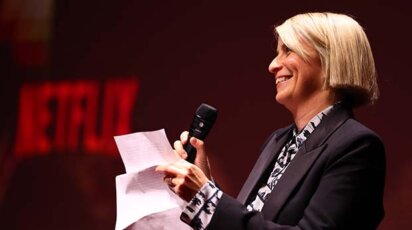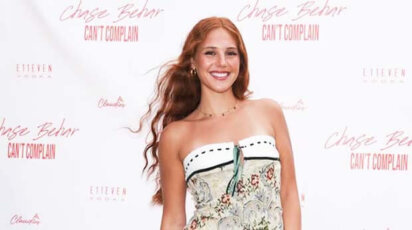News
Poly on Film Features “The Argument” with Dan Fogler ’94
Did you ever have an argument with someone about who is right?
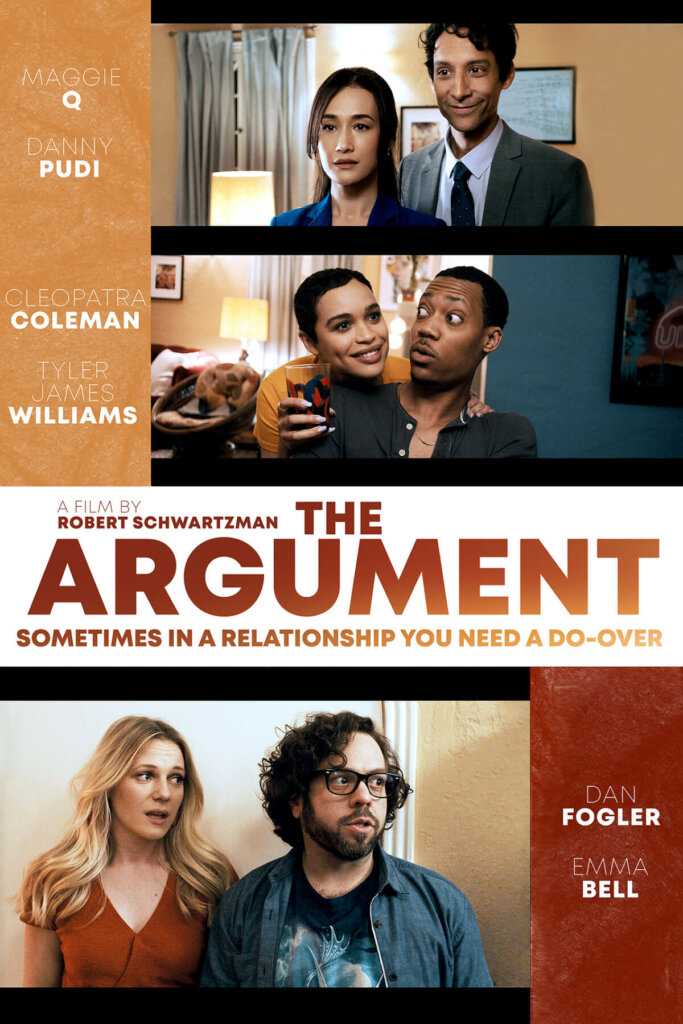
That is the premise of the film The Argument, which was the focus of the sixth and final event of the year in the innovative Poly on Film series featuring Poly alumni who are currently working in film and television.
Robert Aberlin ’62, Director of Arts Outreach, moderated the discussion panel, which featured Dan Fogler ’94. In the film, a couple, Jack (Fogler) and his partner Lisa, have an argument at their cocktail party, which escalates and brings a swift end to the evening. They ask their guests to recreate the entire night again and again word for word to determine who was right. Finally, they hire a group of actors to portray them in a play that Jack has written. The film was directed by Robert Schwartzman from a screenplay by Zac Stanford and stars Maggie Q, Danny Pudi, Mark Ryder, and Emma Bell. The panel included Fogler from the UK where he just finished filming Fantastic Beasts III, Schwartzman via video clips, Dr. Racine Henry ’03, who is a marriage and family therapist, and Ron Sarcos, who teaches psychology at Poly.
From Poly’s Richard Perry Theatre to a Tony Award Winner
Aberlin asked Fogler, a Tony Award-winner, how Poly helped shape his acting career. Fogler explained he watched his older brother, Jason Fogler ’91, perform at Poly in Fiddler on the Roof and thought, “That looks like fun.” Although he tried out for sports, Fogler always came back to acting. “The Richard Perry Theatre became my home.” Rebecca Feldman ’90, who acted on the Poly stage with Jason, along with her sister Liz Feldman ‘95 (creator of Dead to Me on Netflix), became great friends of Fogler. Rebecca was the conceiver of the musical comedy The 25th Annual Putnam County Spelling Bee, and invited Fogler to be part of the show. The play started Off Off Broadway and moved to Broadway, where Fogler won a Tony for his portrayal of Mr. Barfee. They are still creating together and, Fogler said, “It all started there in the Poly theatre with me watching Rebecca in the show.”
Panel Discussion about The Argument
In a prerecorded video clip with Schwartzman, Aberlin asked about his career path. As a youngster, Schwatzman’s mother exposed him to music. Later, he founded a band, Rooney, and got a start in acting when his cousin made a film, Virgin Suicides, and later Schwartzman starred in The Princess Diaries.
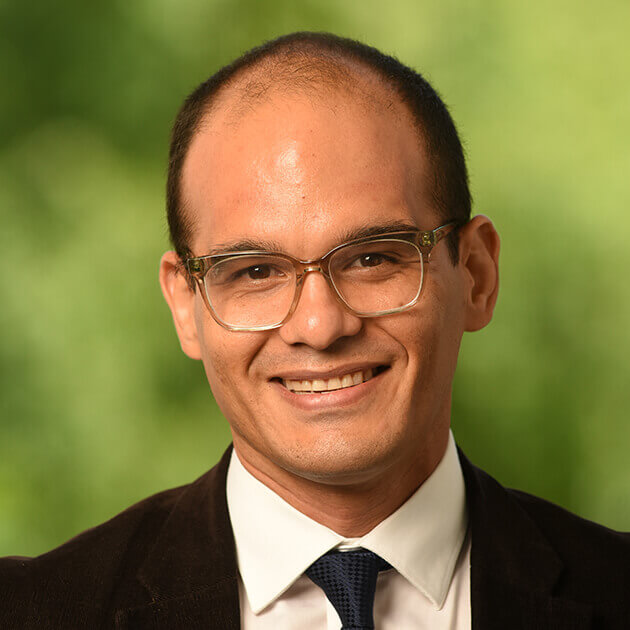
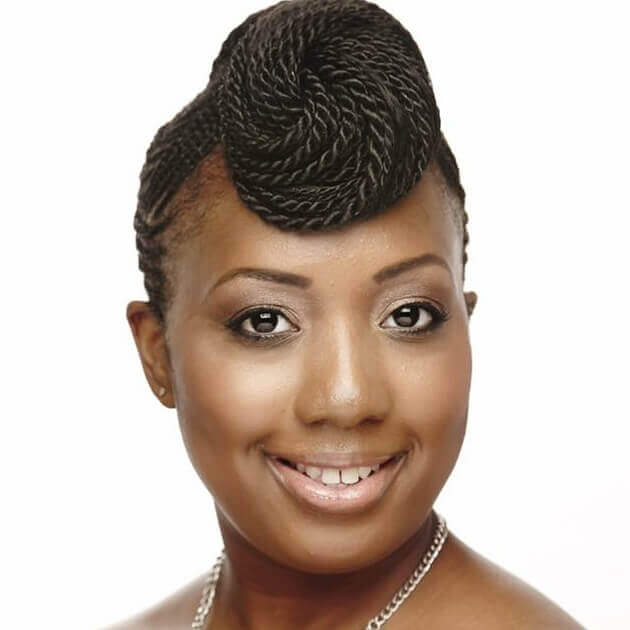
Aberlin asked Dr. Racine Henry ’03 about her own career path. She said she knew she wanted to be a doctor and went into the health sciences because she loved a psychology course she took.
Ron Sarcos began as a communications major in Venezuela and came to New York, where he studied at NYU and came to Poly to teach languages and psychology.
“Fate took you all to different places,” Aberlin observed.
Aberlin asked Fogler about meeting Schwartzman and what he thought of the script. “The script was so theatrical, like movies from the ’80s and ’90s,” he said.
In a video clip, Aberlin asked Schwartzman about meeting Fogler. “I was already a fan,” the director said. “He is a very physical, funny, playful actor.” He described The Argument as “like a play jammed into a movie. Dan was open to trying things.”
The Psychology of Being Right
Aberlin screened a clip from the film in which Jack and Lisa are having the argument about who is right. Dr. Henry said that in her practice, “couples always want to prove they are right.” Ron Sarcos added “how great it feels to be right,” and that it is actually a physiological response.
Dr. Henry said that what the actors do in the film is actually what she does with couples in the therapy process. “I do that on purpose to see what happens” as they argue. It gives me insight into their current method of arguing and allows me to see what needs to be changed to create more harmony. I don’t focus on who is ‘right,’ the process is more important.”
Improvisation on Set
Aberlin asked Fogler how much of the film was improvisational. “The script had cadence,” Fogler said, “but Robert let us improvise. We were an ensemble with everyone talking over each other.” He compared it to drama therapy. “Jack so dearly needs to hear her say he is right.” Spoiler Alert: meanwhile Jack is trying to propose and he keeps getting it wrong.
Schwartzman, responding to Aberlin in a video clip, said the film was “well scripted, well crafted like music that takes you on a journey. I trust actors and want them to play around.”
For an example, Aberlin brought up a somersault that Fogler does in the film, which was purely improvisational. “Many gold medal flips ended up on the cutting room floor,” Fogler said, and added, “I tried to do homages to my favorite actors like pushing my hair to the side like Gene Wilder.”
Sarcos brought up “actor observer bias” in which we try to explain our behavior to others, but which can lead to disagreements.
“Several apple pies were hurt in the making of the film.”
On a light note, Aberlin asked how many pies were used in the film. Fogler admitted, “Several apple pies were hurt in the making of the film.”
Schwartzman explained, “The film was shot in 14 days with a half day for the ‘kitchen stuff and the pies.’”
“Who we think we are isn’t always reflected in how we operate in relationship with others.”
About the play within a film, Dr. Henry said Jack is looking for the response from Lisa he wants to hear, that he was her priority. “In the film,” Dr. Henry said in advance, “one character hires actors to play everyone and the actors he casts are extreme versions of the people in the film, but without holding much truth to how the people see themselves. The actors are almost caricatures of the people. I don’t think many people know themselves well enough to accurately imagine how others receive them. Who we think we are isn’t always reflected in how we operate in relationship with others.”
“It seems like this is light comedy,” Aberlin said, “but it is much deeper here.”
When asked to offer advice to young filmmakers, Fogler said, “Never give up. So many odds are in your favor. You will be seen.”
At the conclusion Aberlin thanked the panel for their time and Head of Arts Michael Robinson thanked Aberlin for a wonderful year of Poly on Film.

